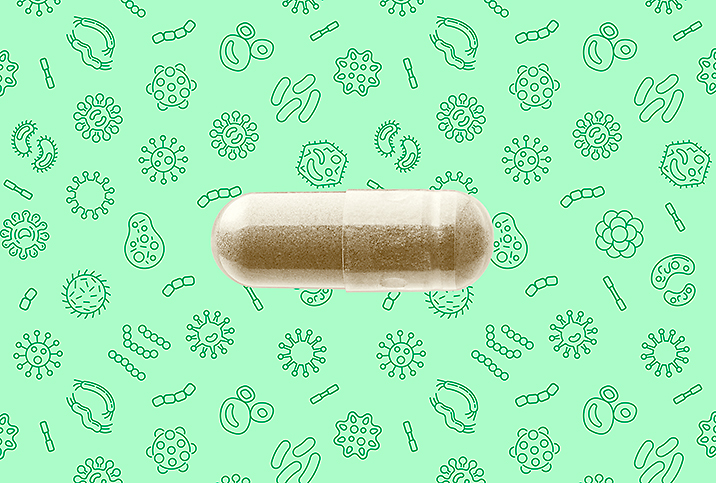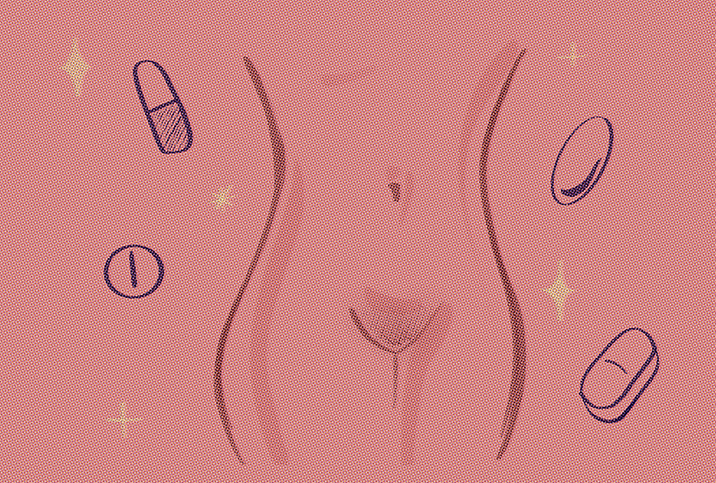The Placebo of Prebiotics and Probiotics

As someone who's had a lifelong love of cheese and equal hatred for basically anything considered "roughage," I've struggled with constipation since the age of four or five. When I was 16, I was diagnosed with Multiple Sclerosis (MS), which led to an even greater struggle with constipation as an unfortunate side effect of the disease.
When it comes to probiotics, I've taken everything from cute little gummy bears to pills shaped like little pearls, those claiming "digestive regularity" and even some with cranberry extract that would also "help prevent urinary tract infections."
I've even taken to boost the immune system and digestive health and help promote a healthier vagina. While it doesn't necessarily prove anything, I've never experienced a vaginal infection, urinary tract infection or even a cold while taking a probiotic, and they do seem to assist in healthier bowel movements.
I had questions
My primary care physician (PCP), Shannon Neer (PA-C) of Family Medicine of Yakima, has given me the A-OK to take probiotics. Thus, I've been using them on and off over the years with varying degrees of success.
Before I start asking questions, I think it's only fair to give you my own personal perspective on probiotics. First off, one person's experience doesn't make effectiveness conclusive (that's not how science works). Second, there is always the possibility of a placebo effect playing a role. Third, I'm aware family medicine has limitations, considering it's not a specialized field. It's always a good idea to run every medication and every supplement you're taking past your PCP although I'd have to add that their approval doesn't confirm they'll be effective. What you really should be asking is whether your current medications will interact with the probiotics you're proposing to take.
On my journey to discover if probiotics are effective, I reached out to gastroenterologist Michael Weisberg, M.D., to get some expert advice on this topic. Weisberg has been dubbed both a "Super-Doctor" and "one of the best doctors" by multiple news outlets in his home state of Texas. Plus, he has been practicing gastroenterology for 31 years.
Here is the outcome of our discussion.
What's the difference between prebiotics and probiotics?
Prebiotics are nutrients that feed the bacteria in your gut and probiotics are the bacteria (the "good bacteria"). According to the Mayo Clinic, prebiotics are found in many fruits and vegetables and probiotics can be found in yogurt, sauerkraut, kombucha and kimchi. Plus, you can find them in supplements.
Do you need to use both a prebiotic and a probiotic for them to be effective?
According to Weisberg, no. The claim that a prebiotic and a probiotic must be used together to work as designed isn't accurate.
Can probiotics ease occasional constipation?
Basically, yes and no. Although Weisberg doesn't prescribe probiotics for constipation, he does think, "Probiotics [can have] the placebo effect on the general population," which means they can be beneficial if the patient believes the probiotics work. Since probiotics haven't been shown to pose any risks to the patient, Weisberg doesn't discourage his patients from taking probiotics.
However, when a patient needs assistance for constipation, Weisberg takes a more medical approach to constipation including evaluating a patient's medical history, prescription history and diet, to try to find the cause of constipation. Once these causes are ruled out, he'll try adding a fiber supplement, water and exercise to their lifestyle. He will add laxatives if fiber isn't enough.
Can you take probiotics for too long?
You can't take a probiotic for too long. In fact, Weisberg commented that he's, "seen people take them for 20 years."
Are there benefits to probiotics for the average person?
Outside of the placebo effect, there really aren't any benefits to taking a prebiotic/probiotic.
Weisberg explained how probiotics have only been shown to be effective in a few diseases such as irritable bowel syndrome (IBS), Crohn's disease and pouchitis (when a part of the colon is removed as a result of severe ulcerative colitis or severe Crohn's disease, and the pouch created during surgery becomes inflamed). In the case of pouchitis, a specific probiotic called VSL#3 can sometimes be used indefinitely to prevent this type of inflammation and infection.
For the average person, Weisberg said dietary changes, ideally with the help of a nutritionist, have "way better" successes than he's ever seen from probiotics for issues such as non-medically explained diarrhea, constipation, gas, bloating, etc.
Does the claim of "immune system assistance" make probiotics dangerous for people with autoimmune diseases to take?
Weisberg said probiotics are not dangerous for people with autoimmune diseases. In fact, Crohn's disease (an autoimmune disease specifically targeting the gut) is one of the few conditions probiotics can be useful for, according to his medical observations.
Can probiotics reduce the risk of colon cancer and other disorders?
There is no proof that probiotics can decrease the risk of any type of cancer or digestive disease. The only thing proven to reduce your risk of colon cancer is exercising regularly, maintaining a healthy weight, eating a high fiber diet and getting regular cancer screenings, such as genetic testing and routine colonoscopies.
So, are probiotics worth the money?
Probably not for most people. For myself, though, I'll try them again just to see if they have the same effect now that I'm aware it was likely a placebo effect that gave me success before.
When asked if he agreed with the statement that there was "no need for probiotics for people that are healthy and have a well-balanced diet," Weisburg agreed. However, he qualified that statement by saying "if you think that probiotics are useful to you, then you should go with the cheapest one because they're basically all the same."


















